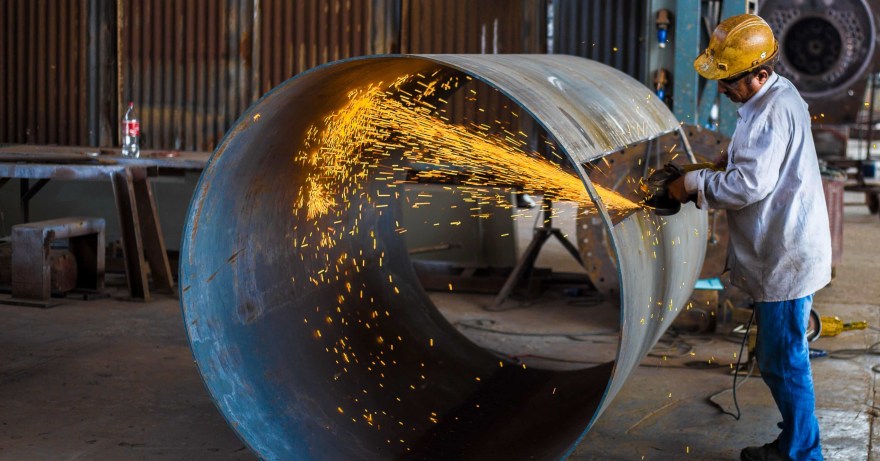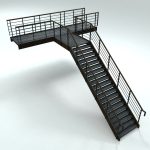Unveiling The Essence Of Metalworking Jobs Description: Empower Your Career Today!
Metalworking Jobs Description: A Comprehensive Guide
Welcome to my blog, where I provide you with unique and engaging reviews of various products, services, places, and now, even job descriptions! In this article, we will delve into the intriguing world of metalworking jobs description. As a metalworking enthusiast myself, I have gained extensive knowledge and experience in this field, and I am excited to share it with you all.
What are Metalworking Jobs?
Metalworking jobs encompass a wide range of professions that involve working with metal, such as welding, machining, forging, and sheet metal fabrication. These jobs require skilled individuals who possess technical knowledge and expertise in handling and manipulating different types of metals.
2 Picture Gallery: Unveiling The Essence Of Metalworking Jobs Description: Empower Your Career Today!


Who are Metalworkers?
Metalworkers are professionals who specialize in crafting, shaping, and assembling metal structures and components. They can be found in various industries, including automotive, construction, aerospace, and manufacturing. With their skills and precision, metalworkers play a crucial role in creating and maintaining the infrastructure we rely on.
When and Where are Metalworking Jobs Needed?

Image Source: slidesgo.com
Metalworking jobs are in demand both in developed and developing countries. As long as there is a need for metal-based products, there will be a demand for skilled metalworkers. These jobs are typically found in factories, workshops, construction sites, and manufacturing plants.
Why Choose a Career in Metalworking?
There are several reasons why choosing a career in metalworking can be a rewarding and fulfilling choice:
Job Stability: Metalworking jobs are essential in many industries, ensuring a stable career path.
Creative Outlet: Metalworking allows you to unleash your creativity while working with a versatile material.
High Demand: Skilled metalworkers are always in demand, providing ample job opportunities.
Potential for Advancement: With experience and continuous learning, metalworkers can progress to higher positions in their respective fields.

Image Source: betterteam.com
How to Get into Metalworking?
To embark on a career in metalworking, you will need the following:
Educational Background: Some metalworking jobs require a high school diploma or equivalent, while others may require higher education or specialized training.
Technical Skills: Proficiency in using metalworking tools, such as welding machines, lathes, and grinders, is essential.
Experience: Building hands-on experience through internships, apprenticeships, or entry-level positions can be beneficial.
Attention to Detail: Metalworking requires precision and meticulousness to ensure high-quality results.
Frequently Asked Questions about Metalworking Jobs
Here are some commonly asked questions about metalworking jobs:
Q: What are the different types of metalworking jobs?
A: Metalworking jobs include welding, machining, forging, casting, and sheet metal fabrication, among others.
Q: What are the typical working hours for metalworkers?
A: Metalworking jobs can have varying working hours, depending on the industry and specific job requirements. Some may work regular business hours, while others may have shift work or overtime.
Q: Are there any safety precautions for metalworking jobs?
A: Yes, metalworking jobs involve working with heavy machinery and potentially hazardous materials. Safety gear, such as gloves, goggles, and helmets, should be worn, and proper ventilation is crucial in confined spaces.
Types of Metalworking Jobs
Let’s explore the various types of metalworking jobs:
1. Welding
Welders join metal pieces together using heat and pressure. They work with different welding techniques, such as arc welding, MIG welding, and TIG welding, to create strong and durable structures.
2. Machining
Machinists operate and program machines, such as lathes, mills, and CNC machines, to shape and cut metal parts with precision. They work with various metals and produce components according to specifications.
3. Forging
Forging involves heating metal and shaping it through hammering or pressing. Blacksmiths and forging technicians create custom metal pieces, such as tools, horseshoes, and decorative items, using traditional techniques.
4. Sheet Metal Fabrication
Sheet metal fabricators work with thin metal sheets, bending, cutting, and assembling them into products like HVAC systems, automobile parts, and kitchen appliances. They use specialized tools, such as shears and press brakes, to achieve desired shapes.
The Size and Material Matters
The size and material used in metalworking jobs depend on the specific project requirements. Metals can be classified into ferrous and non-ferrous categories. Common metal materials include:
Steel: A versatile and widely used metal in various industries due to its strength and durability.
Aluminum: Lightweight and corrosion-resistant, making it popular in aerospace, automotive, and construction industries.
Copper: Known for its excellent conductivity, copper is commonly used in electrical applications.
Brass: A combination of copper and zinc, brass is valued for its aesthetic appeal and resistance to corrosion.
Requirements and Tips for Metalworking Jobs
Becoming a successful metalworker requires specific skills and qualities, including:
Physical Stamina: Metalworking can involve working in physically demanding environments, so having good stamina is essential.
Problem-Solving Skills: Metalworkers often encounter challenges and must be able to find creative solutions.
Attention to Detail: Precision is crucial in metalworking, so paying close attention to details is a must.
Continuous Learning: Staying updated with new techniques and technologies in metalworking is vital for career growth.
Additionally, here are some valuable tips for aspiring metalworkers:
Seek Apprenticeships or Internships: Hands-on experience is invaluable in learning the craft and building connections in the industry.
Invest in Quality Tools: Having reliable and high-quality tools will enhance your workmanship and efficiency.
Attend Workshops and Training Programs: Enhance your skills and expand your knowledge through educational opportunities.
Pros and Cons of Metalworking Jobs
As with any career, metalworking jobs have their own advantages and disadvantages. Here’s a summary:
Pros:
Stable job market
Opportunity for creativity
Hands-on work
High demand for skilled workers
Cons:
Physical demands
Potential safety hazards
Work can be repetitive
Requires continuous learning to stay updated
Conclusion
In conclusion, metalworking jobs offer exciting career opportunities for individuals with a passion for working with metal. From welding to machining and forging, there are diverse paths to explore within the metalworking industry. By acquiring the necessary skills, staying updated with industry trends, and continuously honing your craft, you can embark on a fulfilling journey as a metalworker. Despite the challenges, the satisfaction of creating tangible and functional metal products makes it a worthwhile career choice. Whether you are considering a career change or just starting your professional journey, metalworking jobs can open doors to a world of possibilities.
Thank you for joining me on this metalworking adventure, and I hope this comprehensive guide has provided you with valuable insights and information.
This post topic: Metalworking

